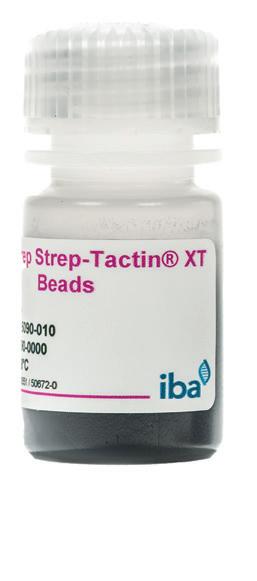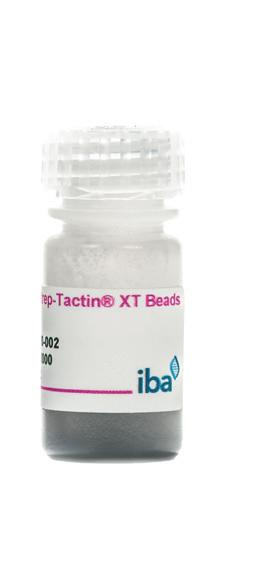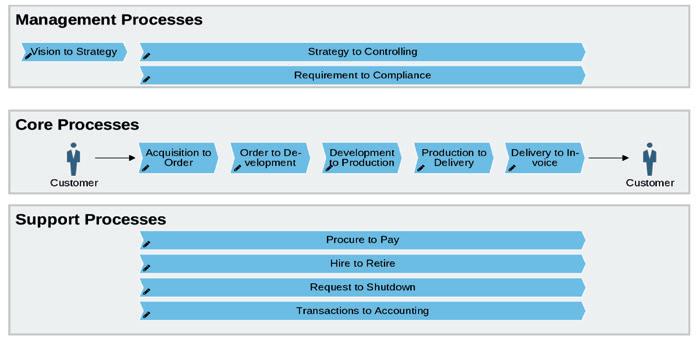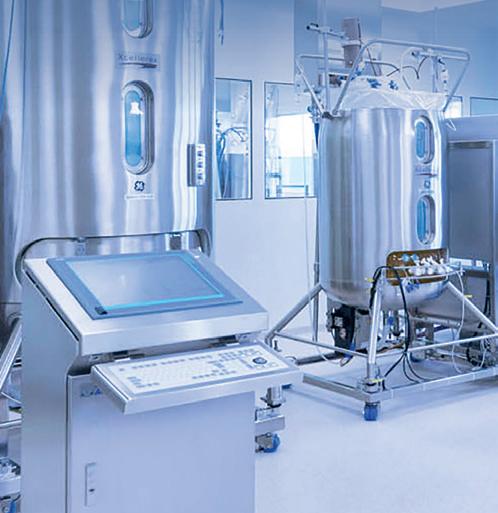Europea n Biotechnolog y

2024
Spring
Bioprocessing Special © MicroHarvest
#sharing challenges and solutions in practice
19/20 March 2024, RheinMain CongressCenter Wiesbaden

Join the GMP PharmaCongress & GMP PharmaTechnica Expo at the RheinMain CongressCenter in Wiesbaden and benefit from more than 100 speakers #sharing challenges and solutions in practice in case studies and lectures. Choose from 11 conference tracks – including topics taking into account novel drugs and therapeutic approaches and sustainability aspects like
ATMPs –Hurdles & Achievements in Quality and Safety
Vaccines – Advantages & Challenges in Manufacturing or GMP – Green or Good Manufacturing Practice?
Create your individual conference programme from these and other current subjects as digitalisation and artificial intelligence as well as from the classic PharmaCongress topics like aseptic production, modern barrier systems and packaging materials. Take further advantage of the parallel PharmaTechnica Expo with more than 110 international exhibitors to get to know and discuss latest technology.
Supported by To
find out more scan code or visit pharma-congress.com
Money for new bioprocesses
BIOENGINEERING Whether therapeutics, novel food or sustainable bioproduction: the UK is leading the way with a £2bn bioengineering initiative over ten years that in its first draft was 90% biomedical, but has been revised after the US bioeconomy strategy came out.
Launched last December at SynbiTECH in London, the new "National Vision for Engineering Biology" lays out the government’s strategy to seize engineering biology and scale-up of production processes, now in medicine, food processing and agricuture as well as sustainable fuel production. The £2bn funding over the next decade that has not yet been specified together with the launch of a new Engineering Biology Steering Group is hoped to bolster economic growth in the UK and creating higher-paying jobs and opportunities across various industries throughout the country.
Skilled staff needed
As more than a third of CDMOs are struggling to keep skilled technical and production staff, attractive framework conditions created through the UK’s initiative
are set to make up for lost ground. According to BioPlan Associates’ 20 th Annual Report and Survey of Biopharmaceutical Manufacturing Capacity and Production in 2023, the inability to hire new and retain experienced technical and production staff will be a major constraint on biopharmaceutical manufacturing capacity. Almost 32% of all respondents identified the inability to hire new, experienced scientific staff as a factor creating capacity constraints over the next five years, up from 19.4% in 2018, confirming that this bottleneck has grown steadily. Both, upstream/downstream process development staff was hard to find, said 42% of respondents.
Providing infrastructure
Overall demand for bioprocess supplies remains strong, and growth is anticipated in both established and
emerging segments with new therapeutics such as ADCs and ATMPs on the horizon. However, in contrast to recent years in which capacity constrains dominated the survey, staffing problems are relatively new to the sector.
The UK had already created a framework to attract qualified staff establishing additional gene and cell therapy hubs besides the CGT Catapult, adressing process intensification in GMP viral vector manufacturing. With this initiative, the UK is also responding to the fact that China has taken the lead in clinical trials for ATMPs over the USA and Europe (see graphics p. 58).
Global CDMOs such as Lonza AG have already reacted. At the end of January, the UK arm of Lonza AG struck a deal with Oxford Nanopore Technologies plc to develop and market a sequencing test to assess multiple critical quality attributes of mRNA products. L


Profound understanding of customer requirements based on 15+ years of experience
UNLOCK PICHIA® toolbox – broad set of expression tools and strategies
Process intensification with methanol-free Pichia allowing shorter batch times
Industry proven and regulatory compliant expression platform
Tailor made glycoproteins – UNLOCK PICHIA® boosting Pichia GlycoSwitch®

43 European Biotechnology | Spring Edition | Vol. 23 | 2024 SPECIAL
www.validogen.com www.unlockpichia.com VALID GEN
A novel BPM system
PROCESS TRANSFER The biotech and pharma branch is growing steadily. Many companies have full order books for the next few years and expect growth. This is the basis for new investments in assets and infrastructure. These growing structures often expose vulnerabilities and challenges for the business. Therefore, companies need to increase the stability and efficiency of their processes.
› Tobias Meder, Business Process Expert at Richter-Helm BioLogics GmbH & Co.KG
Richter-Helm is one of the companies currently expanding to serve the needs of the biotech and pharma market. There will be a significant increase in manufacturing capacity at the company´s production site in Bovenau. The new building will be one of the most modern facilities in the world and perfectly meets the company’s high standards in GMP-compliant CDMO business.
It will be ready for operation this year. The current challenge is to transfer the well working processes to the new facility. Thereby, Richter-Helm is continuously improving and standardising the processes of the entire company. Richter-Helm will be able to differentiate itself from the competition in the CDMO business and respond more flexibly to the needs of its customers.
Business Process Management (BPM) is the structured approach to achieving this goal by making activities, responsibilities and interfaces within an organisation transparent. Implementation begins with the documentation of business processes. This is the basis for later analysis and optimisation. It is recommended to start with a top-down definition of the most important processes. The result



44 European Biotechnology | Spring Edition | Vol. 23 | 2024 SPECIAL
© Richter-Helm BioLogics GmbH & Co.KG
Picture:
Pull-down assays with MagStrep® Strep-Tactin®XT Beads Discover how to improve yield and optimize protocol › High specificity - low unspecific background › Fast and easy purification - conserves even weak protein interaction partners
is the process landscape which represents the main processes. The next step is the detailing. Therefore, the worldwide standard BPMN 2.0 (Business Process Modelling Notation) which is used by most of the companies can be used. The introduction of a BPM software is recommended to simplify the modelling.
During the modelling, companies with several locations often face the problem that their processes work differently. Different executions of the same cess can lead to variations in the ity of the products delivered to tomer. This may affect the reputation of the company and the customer isfaction. So, the first step should the standardisation to increase ciency of the process and the quality the output. In this way, sites can from each other and adopt best tice. At first glance, this may seem a simple quick win, but it requires good change management to get



45 European Biotechnology | Spring Edition | Vol. 23 | 2024 SPECIAL
Co.KG
Picture:
© Richter-Helm BioLogics GmbH &
Bioprocessing Workflow Solutions You Need, from Start to Finish Discover our comprehensive range, from innovative analytical solutions that save loads of time and remove all the hassle, to extensive GMP products and services tailored just for you. Upstream bioprocessing or downstream bioprocessing, we’ve got you covered. Find Out More 5686760550_EMEA_AD_Bioprocessing Print Ad_KM.pdf 1 26/02/2024 10:51
Experts in microbial technology
BIOMANUFACTURING
The world of microbial product manufacturing is a complex landscape, driven by a diverse range of molecule formats and manufacturing processes. At the forefront of this specialty market is Boehringer Ingelheim Vienna, one global leader in biopharmaceutical development and manufacturing.
With over 40 years of experience, Boehringer Ingelheim Vienna has developed and manufactured more than 150 molecules using mainly E. coli and yeast systems. These molecules range from recombinant proteins and peptides to antibody-like molecules, sub-unit vaccines, virus-like particles, and plasmid DNA. This extensive experience, combined with their broad commercial expertise and development capabilities, allows them to offer a comprehensive value chain from early-stage development to commercial launch.
Boehringer Ingelheim Vienna operates three facilities, offering flexibility with cGMP scales ranging from 300 L to 6,000 L. These multi-licensed facilities, designed for high cell density processes, have a strong manufacturing track record with 19 commercial products for global markets.
Their downstream capabilities handle a great variety of molecule formats mainly manufactured in E. coli and yeast
systems. They are built on their long standing experience in protein refolding as well as soluble expression and purification at large scale, also including special techniques for difficult to manufacture proteins. To cater to these requirements facilities allow for handling organic solvents, HPLC chromatography is also available on large scale via commercial scale columns up to 1.8 m diameter and lyophilisation of bulk material is an established process step. In addition, chemical modification strategies can be applied to prolong the protein´s halflife. Among the approaches used by the company are strategies to increase size by the chemical coupling of polymers (PEGylation or HESylation) and the use of FcRn mediated recycling, such as fusion to human serum albumin (HSA) or albumin-binding moieties. Generally speaking, microbial expression systems are most suitable for synthesis of smaller and non-glycosylated proteins, whereas larger proteins like mono -

Our broad commercial expertise and development capabilities cover the whole value chain.
clonal antibodies require mammalian cell culture to be expressed. Due to the short doubling time (minutes instead of hours) microorganisms-based upstream processes are significantly (up to 30-fold) shorter than mammalian processes and yield high product titers up to 20 g/L fermentation broth.
Besides recombinant proteins, plasmid DNA for gene therapy and viral vectors can also be manufactured in E. coli
Boehringer Ingelheim has developed and continually fine-tuned a manufacturing process specifically designed to yield high-quality plasmid DNA. This process leverages the potential of scientific breakthroughs for patients.
A wide variety of molecule formats can be produced via fast cultivation in microbial systems, which present their own challenges. They require tailor-made processes, which Boehringer Ingelheim Vienna addresses with platform-like technology modules and a versatile toolbox to serve individual needs.
Microbial Process Development
Microbial systems, like Escherichia coli and Komagataella phaffii, are used to produce various proteins. The proteins can accumulate in different forms, requiring specific expression, purification, and sometimes refolding processes to reveal the proteins native and active state. These steps can be timeconsuming, potentially limit throughput and may result in product losses. Re -
46 European Biotechnology | Spring Edition | Vol. 23 | 2024 ADVERTORIAL
Picture: © Boehringer
gardless of the expression strategy, the need for a custom purification process adds complexity to process development and manufacturing in multi-product facilities. Technologies that simplify processes by introducing platform-like steps are beneficial for streamlining development and manufacturing, and for increasing productivity.
Fusion protein technologies, for instance, are extensively utilised to enable soluble expression and subsequent affinity purification in E. coli However, they present several challenges, such as a reduction in product yield due to the relatively high molecular masses of tags or, more critically for biopharmaceutical applications, conformational changes that could compromise the efficacy and safety of the therapeutic protein. Boehringer Ingelheim has explored an N-terminal fusion tag, demonstrating its applicability across a broad range of molecules.
The so-called CASPON ™️ (CASPasebased fusiON) system, in particular, features a peptide fused to the N-terminus of the protein of interest and a highly specific protease to remove the tag post-purification, thereby preserving the authentic N-terminus of the target protein. Among other benefits, the tag incorporates a histidine stretch for platform affinity purification.
This exemplifies how platform-like techniques can be effectively used to mimic platform processes that are well-established for purification in cell culture manufacturing.
After defining the molecule format, a number of genetic tools can be utiliszed to boost the productivity of microbial systems. Boehringer Ingelheim has created a comprehensive toolbox, including strains, plasmids, promotors, leader sequences, and helper factors, which have been effectively used to increase soluble expression in E. coli by over 25 times.
The full potential of this multifaceted set of tools can only be harnessed with a predictive screening system. However, conventional screening systems using deep well plates or shake flask

Our general approach from lab to commercial scale for recombinant protein manufacturing.
cultures often fail to accurately predict results for large scale high cell density fermentations, particularly for E. coli To resolve this, Boehringer Ingelheim has engineered a miniaturiszed fermentation system on a milliliter scale that facilitates predictive screening of different constructs in an automated, parallel fashion. This system, coupled with miniaturised, parallelised, and automated screening systems for purification and analytics, paves the way for high throughput process development.
A predictive system is crucial for selecting the most productive strains and for the development of robust processes, which can then be scaled up and transferred. Boehringer Ingelheim employs tools such as computational fluidic dynamics (CFD) to characterise vessels of different scales and adjust small scale equipment to closely mimic the large-scale production environment.
Digital Tools for process boost
Digital tools hold considerable potential to further enhance the development and manufacturing of biopharmaceuticals. The process of developing a biopharmaceutical production process is typically sequential, and optimising each individual unit operation can be quite laborious. In this process, the conditions deemed optimal for one step serve as the basis for the next. However, this approach does not take into account potential interactions between a priori distant process steps, and therefore, cannot ensure optimal overall process
performance. Data-driven integrated process models that employ machine learning techniques and genetic algorithms are powerful tools for simulating and optimising manufacturing processes. The company's SMART Process Design software platform predicts how to adjust process parameters for optimal output. The result of this approach is a manufacturing process that provides efficiency, quality, and speed for the desired molecules, applicable to both clinical development and market supplies.
Summary
Microbial Manufacturing Technologies and Boehringer Ingelheim’s capabilities in this field offer a powerful means to produce a diverse array of products. Platform-like technologies for non-platform molecules can significantly enhance the use of microbial hosts. Digital tools for characterisation and prediction minimise the needs for wet-lab experiments and contribute significantly to the development of robust, well-understood processes. This guarantees a speed-up of time to clinic and market, ensuring patients’ access to innovative medicines.
Contact us:
Dr. Rebekka Wuester
BioXcellence Contract
Manufacturing Business
Boehringer Ingelheim
Biopharmaceuticals GmbH
tel:+49 (6132) 77-0
bioxcellence@boehringer-ingelheim.com www.bioxcellence.com
47 European Biotechnology | Spring Edition | Vol. 23 | 2024 ADVERTORIAL
Picture: © Boehringer
Richter-Helm – how CDMOs become strong partners
CDMO Professionalism and quality are always at the forefront along the whole value chain: from gene to product. To pro-actively meet the evolving demand of the market to produce new assets Richter-Helm significantly increased its manufacturing capacities for biopharmaceutical products at its production site in Bovenau, Germany.
› Dr. Thilo Kamphausen, Director of Business Development; Dr. Kai Pohlmeyer, Managing Director, Richter-Helm BioLogics GmbH & Co. KG

operations, ensuring high product yields. The new production lines utilise state-of-the-art equipment and offer the flexibility to produce different products simultaneously. The new site includes extra space for state of the art on-site analytical laboratories, warehousing, and technical areas. It is built for optimised personnel and material flow and designed for further growth.
Thanks to 35 years of expertise in microbial fermentation in various microbial systems, our company supports the global industry in the targeted and rapid market launch of required products needed to improve health and save lives. RichterHelm provides its clients with a unique knowledge base in process and analytical validation, process performance qualification (PPQ) procedures, commercial production of therapeutic proteins and peptides, antibody-like scaffolds (e.g., VHH/ Nanobodies), bacterial vaccines, and plasmid DNA (pDNA) products.
Within the highly competitive CDMO market Richter-Helm established itself as first in class service provider and partner. Decades of experience, highly motivated employees and the trustful and strong ongoing partnership to its clients continues to consolidate this position. Known to be a highly flexible
partner, Richter-Helm further expanded its production, development and analytical capacities in line with customer requirements.
The biggest milestone has now been reached: the start of production according to GMP standards.
The new facility offers our customers an attractive opportunity and customised solution for the production for particularly large and commercial scales. With the expansion Richter-Helm added two further production lines within a new multipurpose facility. The whole building is designed for maximum flexibility and extends the services for material supply for existing and your new projects. A total area of about 10,000 m2 enables Richter-Helm to take on projects at 300L and 1,500L fermentation volumes for microbial production as well as related mid- and downstream
With even more investments Richter-Helm expanded the developmentand analytical capacities at all of its sites. This step positions the company as the perfect match one-stop-shop for pharmaceutical companies that focus on bringing their pipeline products to the market not only quickly but also with minimum risk. The goal is to build strong and long-term partnerships on equal footing to strengthen and extend business.
Your projects can either begin with full-service development or with direct process transfer producing materials for clinical studies or commercial products at highest quality.
Company Info
L
Richter-Helm BioLogics GmbH & Co. KG Suhrenkamp 59
22335 Hamburg, Germany
BusinessDevelopment@richter-helmbiologics.eu
48 European Biotechnology | Spring Edition | Vol. 23 | 2024
©
SPECIAL
Picture:
Richter-Helm
Richter-Helm´s expanded manufacturing site at Bovenau, Germany – ready to manufacture your product








GMP PharmaCongress 2024 – vaccines, ATMP and more
MEETING
Pandemic preparedness, new vaccines and gene therapies – together with the classic aseptic manufacturing topics the PharmaCongress 2024 offers a comprehensive programme.
› Axel H. Schroeder, Operations Director, Concept Heidelberg
In addition to classic aseptic manufacturing topics, the international GMP PharmaCongress and GMP PharmaTechnica Expo 2024 in Wiesbaden, Germany, will address global challenges with modern vaccines and novel drugs based on cell and gene therapies. The event thus offers a comprehensive programme for experts from pharmaceutical manufacturing, technology and quality assurance from industry, labs and authorities, as well as a platform for the direct exchange of knowledge and experience.
One of the major challenges in today’s era of globalisation, rapid travel and global mobility is to achieve appropriate preparation for pandemics. This requires, among other things, the development of modern vaccines, which must also fulfil a number of requirements:
› Safety: guaranteed by extensive clinical studies and post-market surveillance
› Efficacy: High level of protection against the respective disease, also extensively tested in clinical studies
› Long-term protection: Longest possible protection
› Stability and storage: High stability under different environmental conditions with worldwide use
› Adaptability: Flexible adaptation of the vaccine to new variants of the pathogen
› Production and availability: Rapid production, prepared distribution channels
› Public acceptance: Clear communication of the advantages, risks and benefits

› Ethics and accountability: Compliance with ethical standards during development and production However, other aspects also play a role in preparing for possible pandemics, such as early warning systems, monitoring and response for early detection (AI, big data analysis and telemedicine) with international cooperation, increased research and development for modern vaccines, antiviral drugs and new therapies (platform technologies), building up stocks and emergency reserves, strengthening healthcare systems and transparent communication and education.
One step in this direction is CEPI, the Coalition for Epidemic Preparedness Innovations. The CEPI’s Centralised Laboratory Network is the largest global group dedicated to standardising the assessment of vaccines being developed against some of the world’s most deadly outbreak diseases. Harmonising readouts on vaccine performance in a collaborative approach can expedite the development and regulatory approval of vaccines to enable faster responses to
future emerging threats. This supports the 100 Days Mission, a goal, spearheaded by CEPI and embraced by the G7 and G20, to develop vaccines within 100 days of identification of a viral threat.
The PharmaCongress 2024 is also taking these requirements and developments into account, firstly with a new conference track on vaccines and secondly for the opening of the congress with a key note on the CEPI project, which now involves 40 countries and various organisations.
PharmaCongress 2024 offers a total of 11 conference tracks ranging from aseptic manufacturing to challenges in ATMPs and sustainability in manufacturing with modern technologies. The parallel PharmaTechnica Expo with 115 exhibitors and almost 20 live demos will also provide information on technical innovations and modern services in the GMP and GDP environment.
Axel H. Schroeder
19/20 March 2024
RheinMain CongressCenter
www.pharma-congress.com Contact
50
L
European Biotechnology | Spring Edition | Vol. 23 | 2024 EVENT
PharmaCongress & GMP PharmaTechnica
GMP
Wiesbaden,
Germany
Mr Axel H. Schroeder schroeder@concept-heidelberg.de › QUICK FACTS Picture: © CONCEPT HEIDELBERG GmbH
CONTRACT DEVELOPMENT AND MANUFACTURING OF BIOPHARMACEUTICALS
Richter-Helm is a Germany-based GMP manufacturer specialized in products derived from bacteria and yeasts, with a proven 30-year track record.
Count on us to flexibly provide a comprehensive range of services and customized solutions. Clients worldwide have already benefited from our commitment to good manufacturing practice and total transparency. Our work focuses on recombinant proteins, plasmid DNA, antibody fragments, and vaccines.
Richter-Helm consistently works to the highest standards of pharmaceutical quality.
Contact us
+49 40 55290-801
www.richter-helm.eu

LEARN MORE ABOUT OUR SERVICES AND CAPABILITIES
MICROBIAL PRODUCTION? ARE YOU LOOKING FOR EXPERTS IN
























